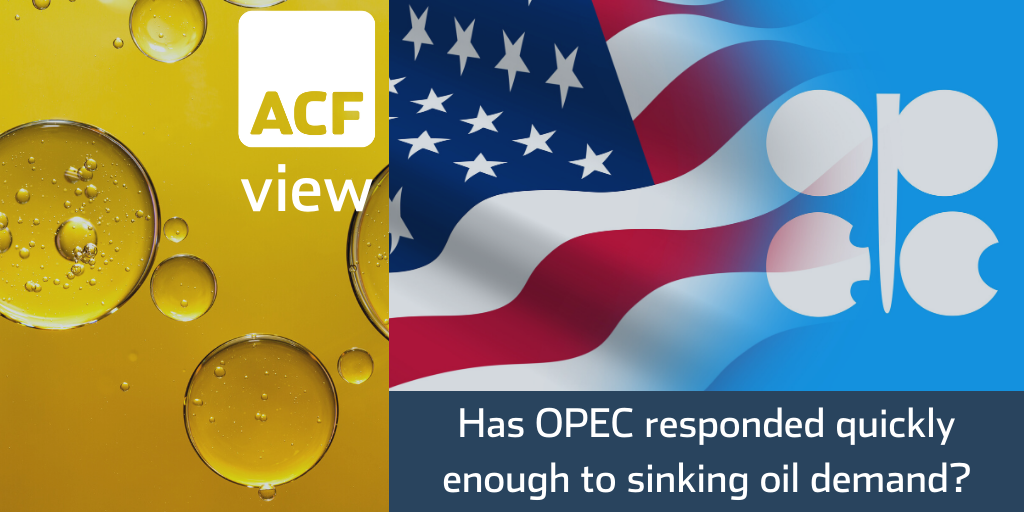Has OPEC responded quickly enough to sinking oil demand?
The Organisation of the Petroleum Exporting Countries (OPEC) announced a historic deal to cut production as The International Energy Agency expects oil demand to sink to the equivalent of at least a third of global supply (by 29m barrels a day in April).
OPEC and its allies promised to restrain production by 9.7m barrels a day in May and June, but in reality OPEC failed to react in a timely manner after demand dropped dramatically due to the effects of the Covid crisis.
Even so, the accord was inadequate to prevent the constant decline in demand in May, and production cuts have been ‘unenthusiastic’: oil producers are often reluctant to stop production, as restarting a well can be costly. A US brokerage, Bernstein, expects global supply to exceed demand in the second quarter by more than 13m barrels a day.
OPEC’s headline numbers made the cuts in production look more significant than they actually are, and as we have seen over many years, not all of the parties to the deal may comply with the cuts, Cartel members are renown for ‘cheating’ on agreements. Saudi has recently announced a further cut to production of 1m b/d, but still deeper cuts to OPEC production are probably needed.
In the US, Trump’s government signalled on the 20th April that it would buy 75m barrels of crude for America’s strategic petroleum reserve (SPR) to try and rebalance the market by removing the oversupply. Refilling the US’s SPR (i.e. buying 75m barrels of crude) requires the approval of Congress as storage across America is filling up rapidly and could reach the tank tops in June, whilst global production is unlikely to drop quickly enough to balance the oil market until at least late summer.
OPEC was too late in making decisions and did not react adequately to the emerging threat to oil prices, in some part due to the psychology of the moment – Saudi and Russia were in a downward oil price war a moment earlier. OPEC members are notoriously reluctant to apply cuts in practice that are agreed publicly. The US will, in all probability, bail out its struggling shale producers, because they are a strategic asset.
Given the dynamics and interested parties, we now expect the oil market to remain jittery and over-reactive to the downside until Saudi brings OPEC to heal and implements dramatic production cuts to get oil back up to $55-65 bbl and perhaps temporarily closer to $100 bbl, in order to compensate for lost revenues, though always at the risk of deepening a global recession.
Add in the Covid factor and this particular play could take months rather than days to exhaust itself. We shall see what the next OPEC meeting brings, now scheduled for Tuesday 9th June. Russia has already made oil markets jittery ahead of the monthly meeting by indicating it may not continue with production cuts.
















